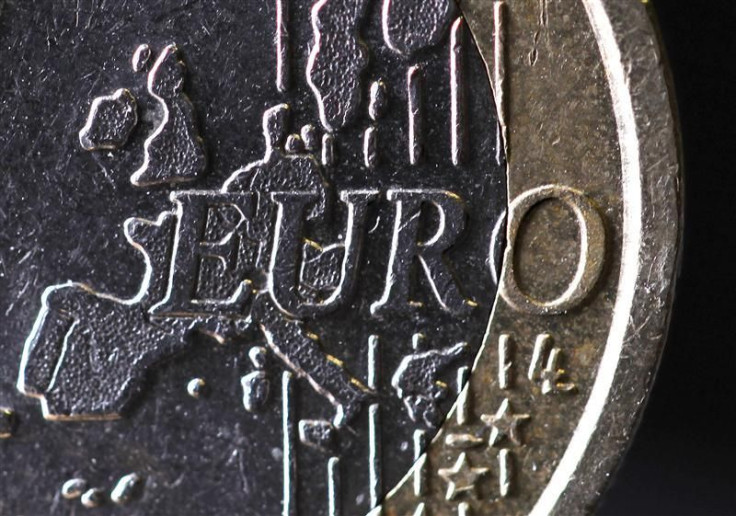Investors See Huge Euro Injection Tomorrow; Banks, Not So Much

Investors and other market participants are apparently expecting the sum European banks will ask to borrow from their central banker to be huge, but the banks themselves are sending different signals.
On Tuesday, the European Central Bank began engaging in a second round of so-called long-term refinancing as a way to aggressively increase liquidity in the euro zone financial system. The liquidity is meant to prop up the tattered European banking and sovereign credit funding systems, and follows a first round disbursed in December 2011 to 523 banks that totaled €489 billion ($658 billion).
"The ECB has responded to the dislocations on the money markets with a set of liquidity operations which have, in effect, made the ECB the lender of first resort for many European banks," Jen Sondergaard, senior European economist at Japanese financial zaibatsu Nomura, wrote in a recent note to clients.
The euro zone's central bank, which began taking bids from European financial institutions for three-year, 1-percent interest euro loans Tuesday, will announce how much in bids it accepted at 10:20 a.m. Wednesday London time (5:20 a.m. New York time).
"The question the market is trying to figure out before Wednesday is how large is it going to be. Will banks raise so much liquidity that the problems that exist will disappear? Or will banks be very cautious and just raise enough to replace their own liabilities?," asked Jürgen Odenius, chief economist at buy-side asset manager Prudent Fixed Income.
Various surveys of market participants conducted over the past few days suggest some are hoping for a large infusion of cash from central bankers, perhaps in excess of €600 billon.
A Barclays Capital survey of 204 clients found 42 percent of clients expect the take-up announced Wednesday to be between €450 billion and €600 billion. At least 20 percent of respondents expect banks to borrow even more than that, with answers suggesting some see a liquidity injection in excess of 1 trillion euro. BarCap's own prediction is much more modest, suggesting loans in the order of €350 billion will be given out by the central bank.
A similar survey released earlier by Goldman Sachs revealed 39 percent of investors saw a take-up in excess of €750 billion.
But European bank respondents are making more moderate bets. The largest chunk of clients at euro zone banks in the Barclays survey, 36 percent, said they expected a take-up between €300 billion and €450 billion. In the Goldman survey, bank respondents predicted lesser take-ups than investors, with 93 percent suggesting lending would not exceed €750 billion.
What market participants say they expect would certainly be advantageous to them. While the ECB's loose lending is understood as not significantly affecting the fundamentals of the market, it is expected a large injection of liquidity will lead to an increase in nominal prices across asset classes, but particularly in equities. That rise in prices is important if it raises the fortunes of European sovereign bonds, thereby lowering the amount governments on the Continent must pay to finance their ongoing deficits.
"We can almost certainly expect further equity-market strength following the next LTRO (long-term refinancing operation), falling volatility and with it, a narrowing of spreads of troubled euro-zone issuers with respect to bund (safe-haven German government bond) yields. We might even possibly get a slight increase in bund yields as safe-haven concerns are reduced," said Rob Carnell, chief international economist at ING Bank told Marketwatch.
But the fact a large liquidity injection will be good for the holders of stocks, bonds, and commodities doesn't mean the banks will cooperate. For one, there is a belief among certain bank management teams that taking cheap money from the central bank is an emergency measure that could suggest weakness in a specific's bank balance sheet, causing a stigma to that institution's reputation.
Deutsche Bank Chief Executive Josef Ackermann told analysts last week, for example, that the bank was proud to "have never taken any money from the government," saying that fact "has made us, from a reputation point of view, so attractive with so many clients in the world that we would be very reluctant to give that up.?
If there is a big take-up, it will be, at least partly, because the central bank has made rules as to which collaterals it will accept on the loans even broader this time around. Another reason that banks might borrow a large amount from the ECB has to do with competitive advantage.
"At this point the lender of last resort is making it extremely attractive to participate. One would need to ask the questions as to whether those bank that don't participate are maybe in a competitive disadvantage going forward," Odenius, the Prudential chief economist, said.
And while acknowledging there is such a thing as too much LTRO, he notes it will all be relative.
"It's almost what you perceive the convention to be: are you driving on the left hand side of the road or the right hand side? It really doesn't matter which side you're on as long as you're on the right side of the road."
© Copyright IBTimes 2024. All rights reserved.




















